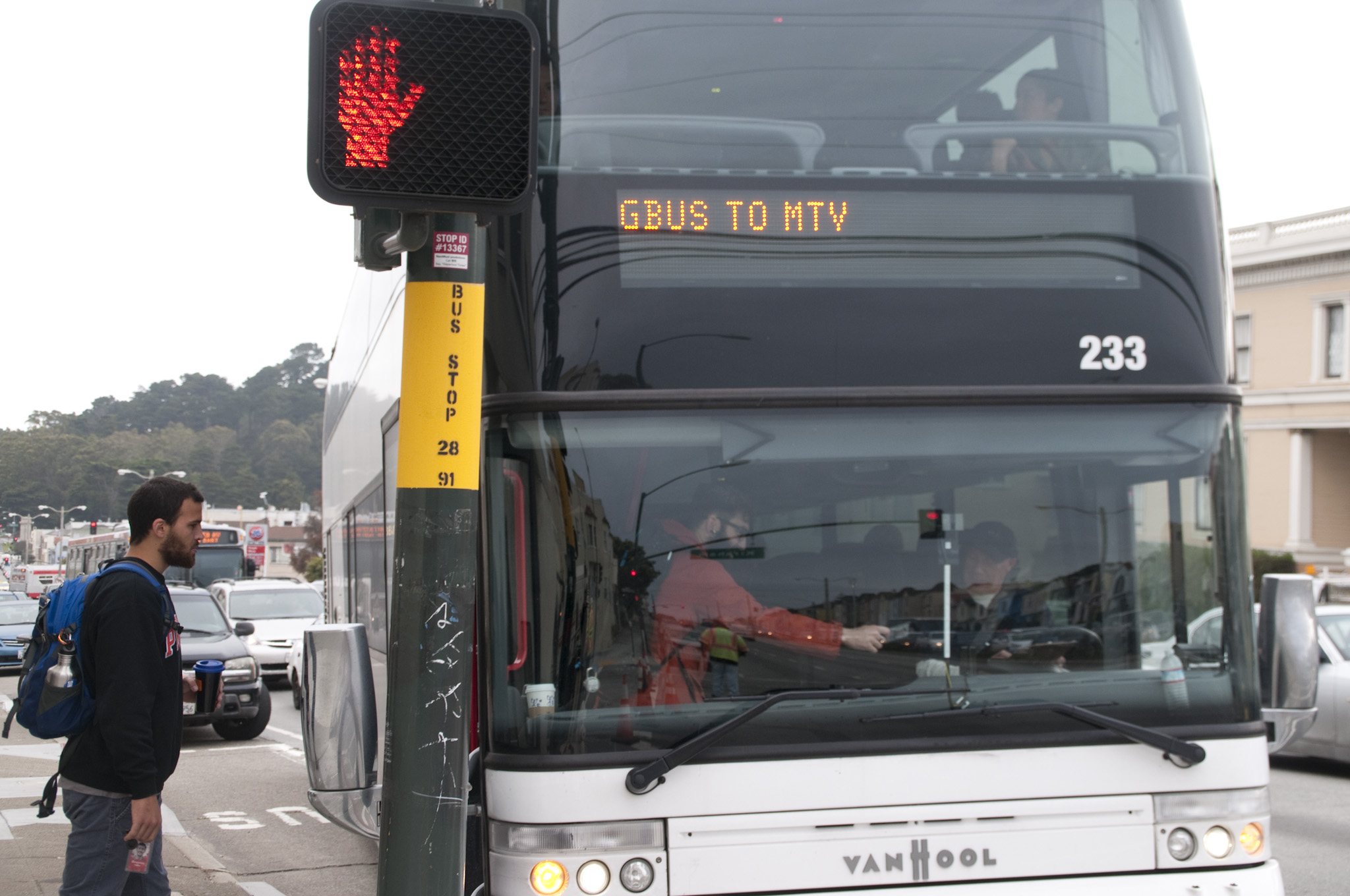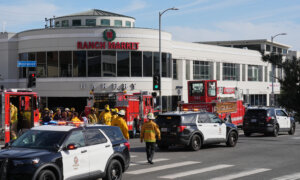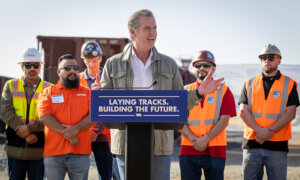SAN FRANCISCO—An electric bus that is part of Google’s shuttle fleet crashed into multiple vehicles in early November, reported Fox KTVU News.
A person was inside one of the vehicles and was injured and sent to the hospital. The extent of the injury was unknown.
The San Francisco Police Department (SFPD) confirmed that multiple vehicles were damaged after the bus crashed into them around 8:45 in the morning.
News of the crash was first posted on X, formerly known as Twitter, by user Xian Ke, who said a Google bus lost power while going uphill and rolled backwards, colliding with nine vehicles in the Castro District.
Google confirmed through email to KTVU that the bus was part of its fleet and told the news outlet that the safety of everyone involved was Google’s priority while it worked with authorities to figure out what had happened.
The video that Xian Ke shared, which was taken by a friend, shows a gray double-decker bus with “100% Battery Electric” written on the side, at a full stop after the accident. In the video, next to the bus is a black truck that appears to have been pushed onto the sidewalk by the bus as well as a gray SUV pushed onto the sidewalk and into a tree.
Pictures posted on X by user David Gallagher, a San Francisco resident, show two black SUVs with front-end damage blocking the road, a white hatchback with front-end damage in the road, and a small white hatchback with minor front-end damage parked near the curb. Also, one of the pictures appears to show the back of the bus at a stop, crashed into a silver sedan with heavy damage to the side and rear of the vehicle.
The reason for the accident is under investigation. The SFPD and Google did not provide the cause of the collision.
Jason Simms, a mechanic of over 20 years and owner of Argonaut Garage in Berkeley, which services hybrid and electric vehicles, told The Epoch Times: “Cars are designed, even electric cars are designed, to have essentially mechanical brakes, hydraulic brakes, all the time regardless of the current electrical status.”
He added that when an electric car shuts down while driving, the hydraulic brakes on the car, which are a mechanical system, should work all the time.
“But I don’t think, just knowing cars and the like, that there should have been any reason why an electric car losing power would have caused it to roll backwards,” he said.
If the situation is that the electric motor gave up or maybe the battery went dead, Mr. Simms said the reason this could have happened is either the driver didn’t hit the brakes on the bus as it was rolling backwards, or the brakes failed.
“Now in any car, gas or otherwise, you have power assist brakes,” he said. “If for some reason the car stalls, the brakes get difficult to press. They’re not going to work the same way. … A giant bus like that, as it’s rolling backwards on the hill, might take a massive amount of leg force or pressure on the brake pedal, and so who knows what the reaction from the driver was.”
He said that it would definitely scare the driver if the car started rolling backwards and the brake pedal was really hard to press.
He said he’s not quite sure what the Google bus was equipped with, but from a car and truck standpoint, most modern cars don’t have mechanical parking brakes, or e-brakes; they’re electronic. He said electric parking brakes are not designed to be able to be used while driving down the road, so if the car is rolling and you pull that switch in your car that turns on the electric parking brake, it’s not going to work because the car is moving; however, if it had a mechanical e-brake, then the driver should have been able to press it.
According to a 2022 news article by The Science Times, Google announced in 2013 that it would offer free transportation to Google employees who live in the Bay Area and Mountain View in Silicon Valley.
One of its latest projects is an all-electric bus fleet that shuttles people from their homes to work and back. Google has stated that the buses are part of its mission to improve transportation in places like the San Francisco Bay Area.
The Google fleet includes both hybrid and all-electric cars that use a combination of public transit and shuttle bus service to get employees to and from work. The shuttle buses are equipped with wireless internet access, USB ports, and leather seats.













